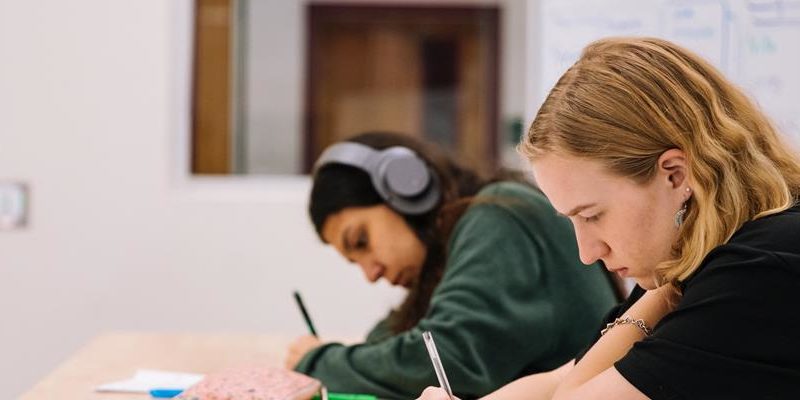Universities are helping Year 13 students improve their academic skills and well-being
Universities are increasing efforts to support the education and well-being of Year 13 students transitioning to higher education this autumn, amongst growing concerns from teachers and parents that the disruption caused by the Covid-19 pandemic will disadvantage school and college leavers academically.
A new collection of recent case studies highlights some of the support provided by universities across the UK to equip new undergraduates with the skills they need to thrive before and during their studies, as well as how universities are assisting them in adjusting to university life.
Schemes range from academic preparation resources to boost study skills and address lost learning with assigned tutors and online modules, to mental health and wellbeing support from student ambassadors to reassure and welcome new students. Universities are confident that the extensive support available will ensure that Year 13 students about to start their degrees are not disadvantaged by the disruptive challenges they have faced throughout the pandemic.
Professor Julia Buckingham CBE, President of Universities UK, said:
“Universities recognize the challenges that Year 13 students have faced over the past 15 months and as a sector, we are stepping up the support we are offering to all those starting a degree this autumn. Applicants can expect more guidance from their university, with many initiatives taking place over the summer months.
“The whole education sector shares a common aim which is to ensure students emerge from the pandemic fully supported to succeed. We hope that our initiatives will enable students starting university in the UK this autumn to have a safe, happy, and smooth transition to higher education.”
The University of Sheffield has created an interactive study skills resource called ‘Level Up Your Skills’ for all new undergraduate students to help them transition into undergraduate-level study. The resource enables students to gain the skills and confidence needed to get off to a good start on their course – reflect on their strengths, gaps, and challenges. It also enables students to set and work toward skill-related goals for the academic year and apply their academic skills to course learning and assessment. Students can access this before they arrive at university up until week 12 of their course. Students can choose to record their progress and work towards an Academic Skills Certificate for recognition of their skills development.
To help students prepare for higher education, the University of Cambridge has developed a STEM Start course. By revising school materials, reassures students and promotes confidence building. Students are also provided with GCSE and A-level revision materials before the start of the course via the Isaac Physics platform. The online course lasts four weeks and requires nine hours of study per week. A 16-month program is being planned to support Year 12 widening participation students beginning in January 2022 and ending with exam results in 2023. This will be a pilot program for physical science and engineering students, funded by the School of Physical Sciences and delivered by Isaac Physics (Funded by the Department for Education England and The Ogden Trust).
Since February 2021, the University of Leicester has been assisting new students through its HeadStart campaign. A digital readiness module, live and on-demand sessions with student-created content such as cooking demonstrations, Netflix “watch-along,” and quiz nights are all part of the campaign. There are also sessions for parents to help them understand how they can support their child as he or she prepares to begin university. Students receive weekly emails that confirm the live activity that is taking place that week. A letter of support from the vice-chancellor has also been sent to students and their parents to provide additional reassurance.
The University of Sussex has created new workshops for first-year students to explore the challenges they faced at Sussex and in local colleges during their transition to university, as well as how they overcame those challenges. The Situate workshops will be held for the second time in September 2021 for new students, focusing on topics such as health and well-being, social pressure, financial pressure, and academic pressure. The workshops will be led by second-and third-year student Mental Health Ambassadors and will provide time, space, and peer support in looking after one’s mental health at university, as well as assistance in finding help and extra support if needed.
Wrexham Glyndwr University has developed a free online ‘Confident Learner’ course for anyone thinking about studying at the undergraduate level. The course is designed to boost confidence in those starting university for the first time, returning to study after a break, or considering a professional or part-time course.




